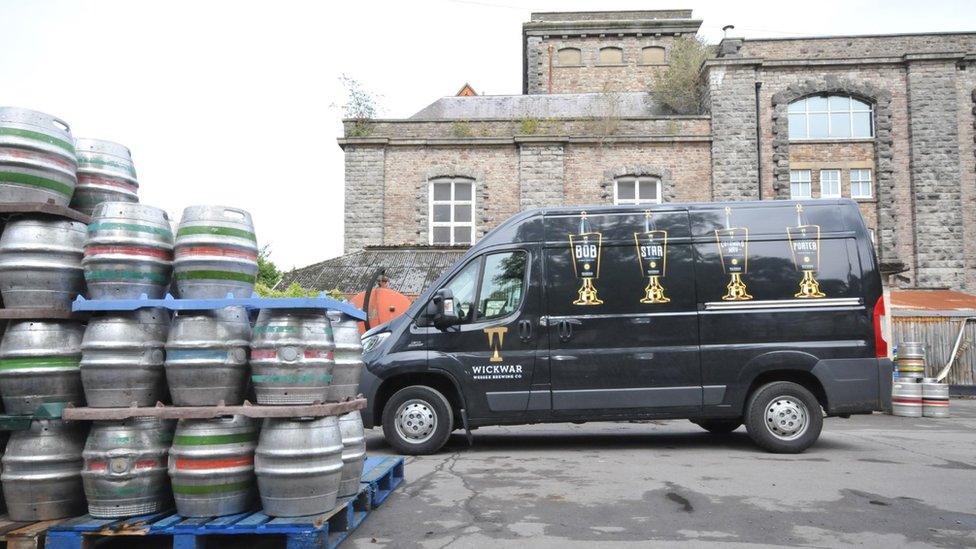Cheltenham Brewery invests in 65 hectares of peatland
- Published

DEYA Brewing Company makes a million and a half pints of beer each year
A brewery has invested in 65 hectares (0.25 sq mile) of Welsh peatland in a bid to offset its emissions and reduce its carbon footprint.
DEYA Brewing Company in Cheltenham, one of the largest craft beer brewers in the UK, makes a million and a half pints of beer each year.
Brewing uses a large amount of water and energy for canning and kegging.
The firm said restoring the land, which contains carbon, was part of a plan to become more sustainable.
The company has invested more than £60,000 in restoring Welsh peatland.
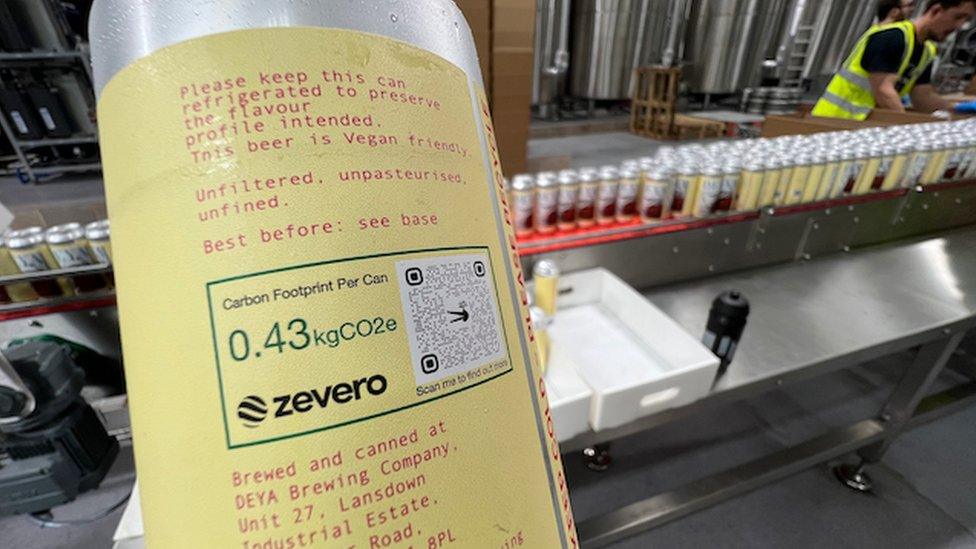
The company has stated its carbon footprint on each can of beer
Many of the company's hops come from America and New Zealand.
Owner of DEYA Brewing Co, Theo Freyne, said: "Brewing in general is not a particularly sustainable business operation, but we are doing what we can to try and counteract that as much as possible."
After the company did a carbon audit, it decided it needed to do something to reduce and offset emissions.
"There's opportunity to make it [brewing] more sustainable, by looking at our own processes and looking at what we purchase," Mr Freyne said.
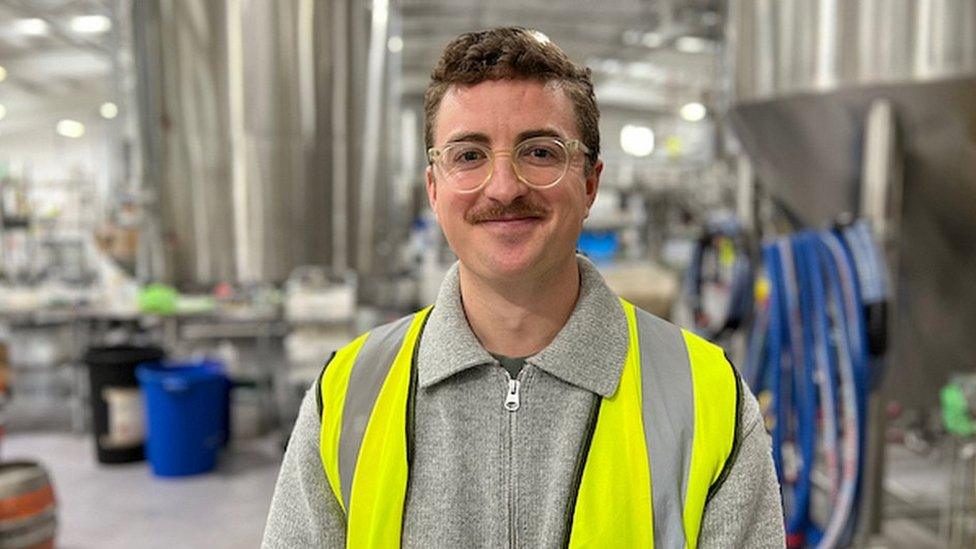
Theo Frayne, owner of DEYA, says the company has plans for bigger projects in the future
DEYA has invested in the restoration and maintenance of the 65 hectares of peatland in Snowdonia to help offset its emissions.
Rachel Harvey, Peatland Manager, Snowdonia National Park said: "Peatlands currently pump out greenhouse gases, so we really need to put a cap on those greenhouse gas emissions."
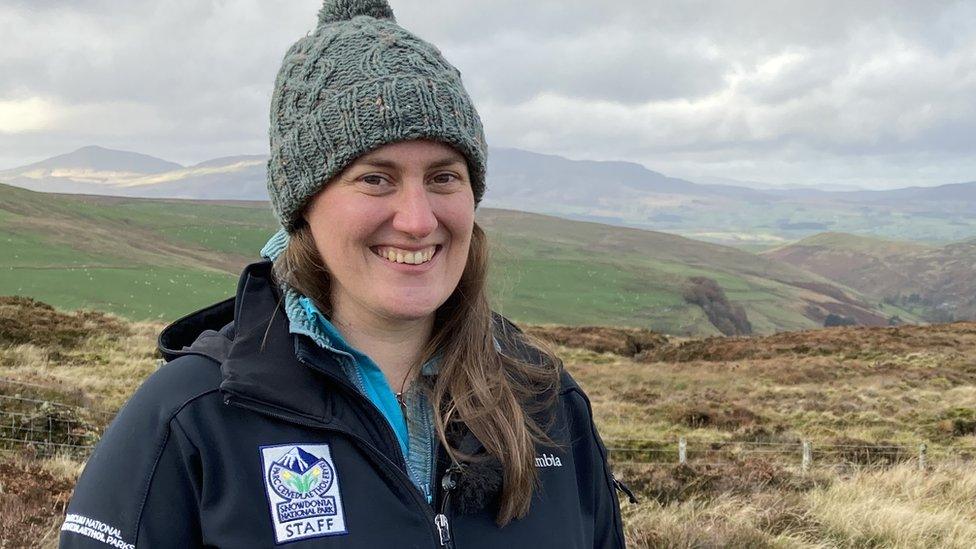
Ms Harvey said that peatlands have a lot of ancient carbon stored in them
But it will take 35 years for this peatland to offset around three years of DEYA's emissions, which the firm said showed the scale of the sustainability challenge.
Around 70-80% of the company's emissions come from off-site, such as suppliers and transport, but the firm said it would also look in-house to make changes as well.
"There's a whole heap of emissions associated with fertilisers that are used to grow malt and hops," Ben Woodliffe, sustainability lead for DEYA, said.
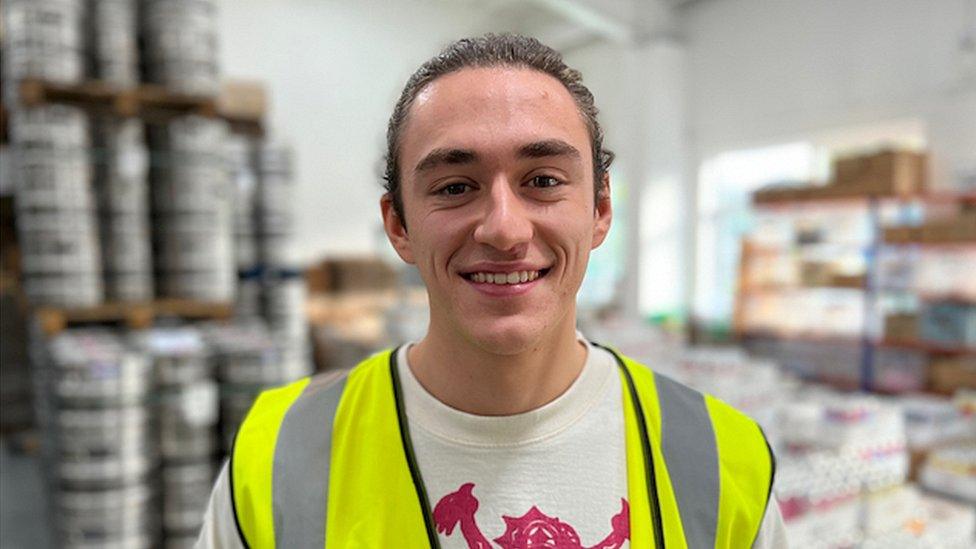
Mr Woodlife says DEYA is working to reduce in-house emissions as well
DEYA is now monitoring its emissions every month, tweaking where it can to keep the numbers down and like many businesses it said it was looking to the long term.
The firm states its carbon footprint on each can of beer.

Follow BBC West on Facebook, external, Twitter, external and Instagram, external. Send your story ideas to: bristol@bbc.co.uk , external
Related topics
- Published18 June 2021
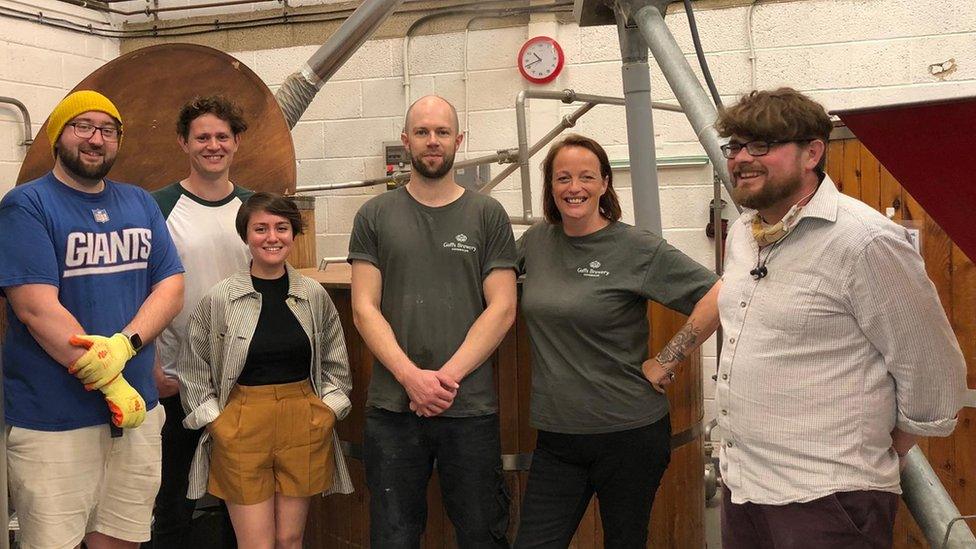
- Published23 December 2020
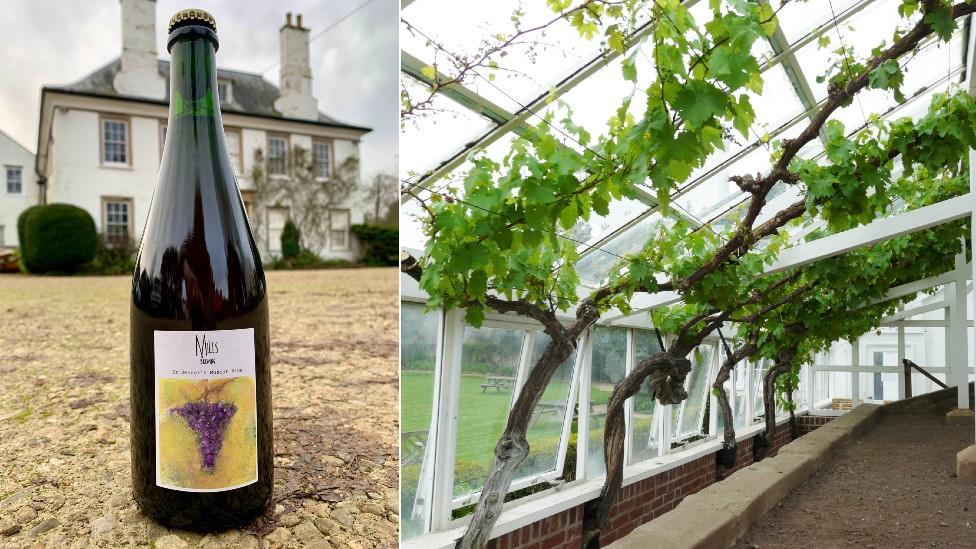
- Published16 December 2020
